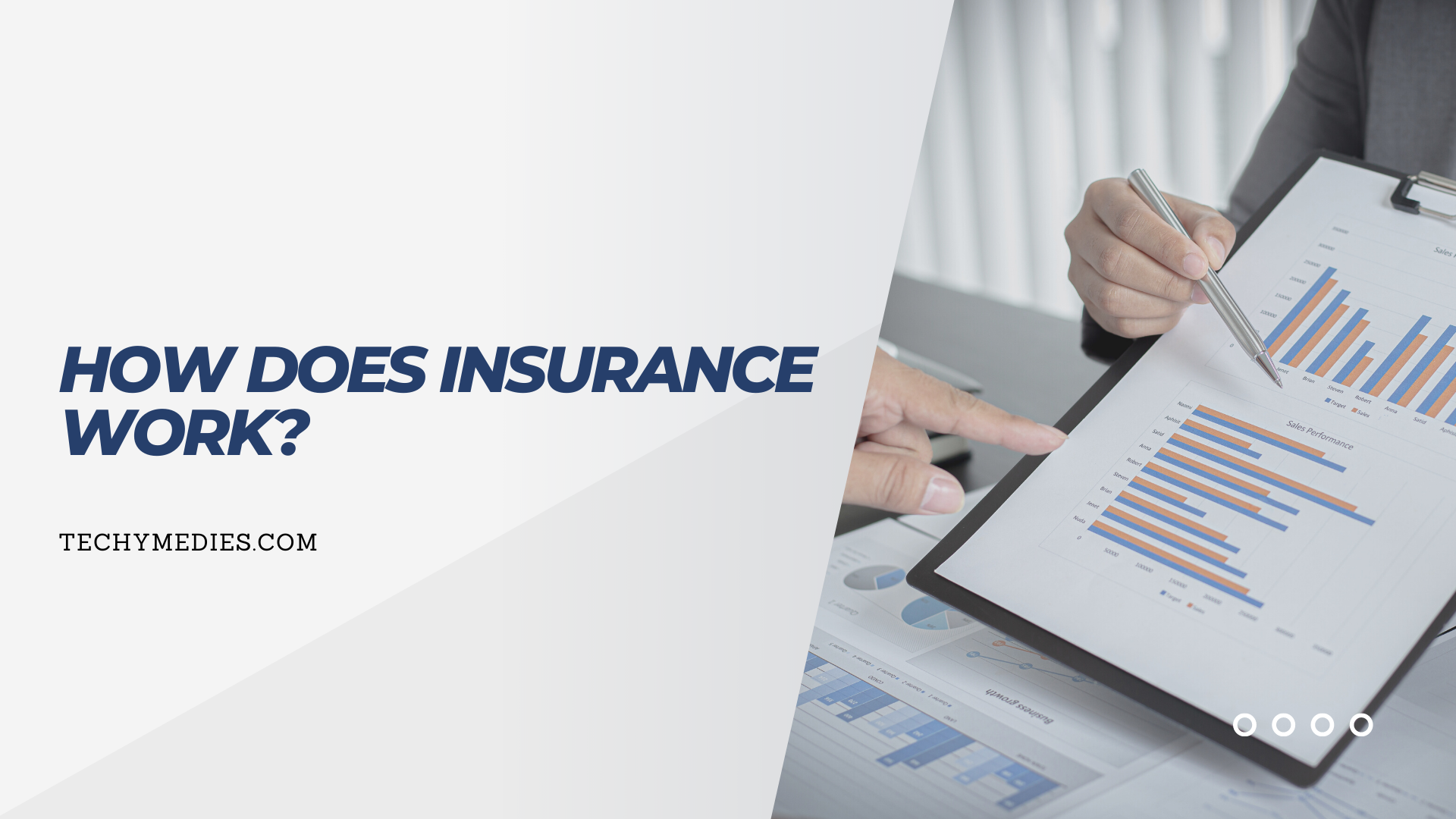How does Insurance Work?

Insurance policies protect against large and small financial losses that could be caused by damage to the insured's properties or the liability for injury or damage caused to another party.
How Does Insurance Work
Knowing the way insurance is a bit of a challenge. It's essential to understand insurance fundamentals to receive the services you require. Knowing what's available and how it functions can significantly impact the amount you'll have to pay for Insurance. With this information, you'll be able to select the best Insurance to safeguard your lifestyle, assets, and property.When you purchase Insurance, you pay the certain amount to the insurance company. These payments are known as " premiums." In exchange, you will be protected from risk. The business agrees to compensate the cost of losses should they occur. It is the notion spread the chance of loss like a theft or fire across several people makes the risk lower for everyone.
Every insurer's policy has different guidelines regarding what the policy will include. Exclusions could apply. Therefore, it is essential to read your policy thoroughly and take advice when unsure which coverage it covers.
The insurance firm has a lot of clients. They all have to pay the premiums. However, not all clients will suffer a loss simultaneously. If a loss occurs, they may receive insurance money to help pay for the loss.
Underwriting and Reinsurance
Reinsurance and Underwriting are two components that define how an insurance company operates.Underwriting
Underwriting is the method by which an insurance company calculates how much they should be charged for every risk they take for every individual who buys an insurance policy and under what conditions.Underwriters consider various factors when working out the cost of specific risk insurance. Every insurer has guidelines for underwriting to determine the appropriateness of their decision to accept the risk associated with specific circumstances.
Underwriting involves determining the cost of a product that is reasonable enough to attract a decent amount of customers but sufficient to ensure that there are enough funds in the funds pooled to cover any claims that could make and make an income for the shareholders of the insurer.
Reinsurance
Reinsurance is a type of Insurance that insurance company can use to carried their work. It is a way to protect against different risks for insurers. For instance, insurance companies can employ reinsurance to ensure they can cover a substantial number of claims when there's a major disaster like flooding or a cyclone. This is typically referred to as catastrophe coverage.Insurers can also use reinsurance when they have policies that have claims greater than a certain amount and have been negotiated in advance by the reinsurer. Reinsurance is a grouping of insurance companies, usually from different geographic regions, which group together to share the risk risks.
Understanding Insurance Policy Components
Inside any insurance policy, there are three policy components. Its inner parties or chain involved the insurance company in processing the whole insurance algorithm. Premium, Policy Limit, and Deductible are an insurance policy's three components.Premium
A policy's premium is the policy's price, usually in the form of a monthly price. The insurer sets the price based on the risk profile of your company or personal profile, which could include creditworthiness.Policy Limit
A policy's limit represents the maximum amount that an insurance company will cover under a contract for the loss. They can determine the maximums per period (e.g., annual or the policy term) for each accident or loss or over the policy term, also called the lifetime maximum.Deductible
The deductible is the amount the policyholder must pay out of pocket before the insurer settles the claim. Deductibles are used to deter massive amounts of small or small-sized claims. Deductibles may be applied per policy or per claim based on the insurer and kind of policy. The policies with the highest deductibles typically cost less because the considerable out-of-pocket cost typically results in fewer small claims.How Do Insurance Companies Pay Claims?
If you suffer losses, like the result of a car accident or house fire, you should contact your insurance company immediately and notify them. They will take note of your claim and investigate the incident to determine what occurred and how you're covered.Once they have determined that you are an insurance-covered loss, they will pay for the loss to you or at the shop for repairs in case of a crash in your vehicle. The check will cover the loss you suffered, less the deductible.
Understanding Insurance Key Terms
Endorsements are a way to add an existing policy to increase coverage. In certain situations, they could alter an existing policy to decrease or limit the amount of coverage.Exclusions aren't included in the policy. It is crucial to inquire regarding the exclusions of any policy you purchase to ensure that the fine print won't make you feel like you're making the event of a claim.
Policy Type means a variety of kinds of Financial protection policies in Insurance. If you receive a low price for an estimate, inquire about the type of policy you've got or the limitations. Compare this information with the details in other quotes that you've had.
Particular Limits is one section that lists limits on amounts to be paid. This applies to all insurance policies, including health insurance, car insurance, and more. This is especially important when you make a claim. Be sure to inquire about which insurance coverage are not covered and what limits they are. You may be able to ask for the kind of Insurance that offers more significant limits if the limits stipulated in the policy aren't enough for you.